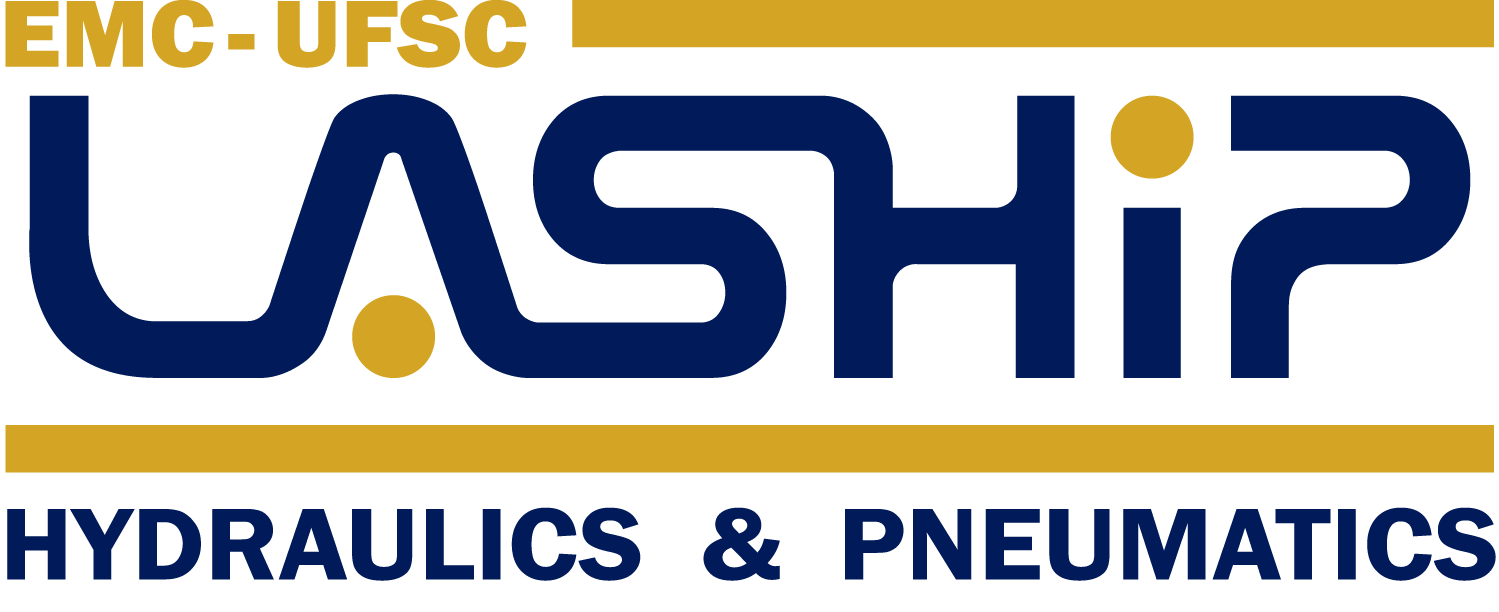Candidate:Vinícius Vigolo
Program: UFSC / POSMEC
Date: July, 2025
Advisor: Victor Juliano De Negri
Abstract: Due to the growing demand for sustainable technologies and the global increase in energy consumption, energy efficiency has become a pillar of sustainable economic development. Pneumatic systems, widely used in industry due to their low cost, high power density, versatility, and robustness, face the challenge of low energy efficiency. While existing strategies aim to improve this aspect, they often involve additional components, complex control, high costs, and reduced reliability, limiting their practical application. In this context, proper sizing of pneumatic actuation systems becomes an efficient solution to enhance their energy performance. Therefore, this thesis proposes a design and setup framework for pneumatic actuation systems that balances energy efficiency and robustness, achieving an optimal operating condition. The framework comprises a set of concepts and definitions that support the optimization of sizing of pneumatic actuators and valves, provide guidelines for selecting the most effective throttling method, and integrate a real-time monitoring system for optimization of pneumatic systems during operation. The developed tools aim to eliminate uncertainties in pneumatic system design, such as determining chamber pressures in actuators, friction forces, system dynamic behavior under variable loads, and effective load force determination. To address these uncertainties, the governing equations of the system under steady-state assumptions were used to identify an optimal operating condition where energy efficiency and robustness are balanced. The analysis of the characteristic displacement times of pneumatic actuators, combined with statistical analysis of experimental data and dynamic simulations, enabled the development of analytical equations for system sizing. A hybrid machine learning (HML) model was developed to optimize pneumatic systems during operation by adjusting supply pressure and the throttle valves openings, ensuring that design requirements are met and optimizing air consumption based on the actual applied loads. The framework was extensively evaluated through dynamic simulations and experimental tests, demonstrating its ability to meet design requirements, ensure robust operation, and avoid excessive compressed air consumption. The HML system proved effective in optimizing operational conditions, enhancing robustness for undersized actuators, and reducing air consumption by approximately 50% in oversized actuators. In conclusion, the developed framework addresses the knowledge gap in pneumatic system design, offering a systematic alternative to traditional sizing methods.
Keywords: Energy Efficiency, Pneumatic systems, Robustness, Machine Learning, Design framework, Operating point.
Reference: VIGOLO, V. Enhancing Energy Efficiency and Robustness in Pneumatic Actuation Systems: A Design and Setup Framework. 2025. 257 p. Tese (Doutorado em Engenharia Mecânica). Universidade Federal de Santa Catarina, Florianópolis.




